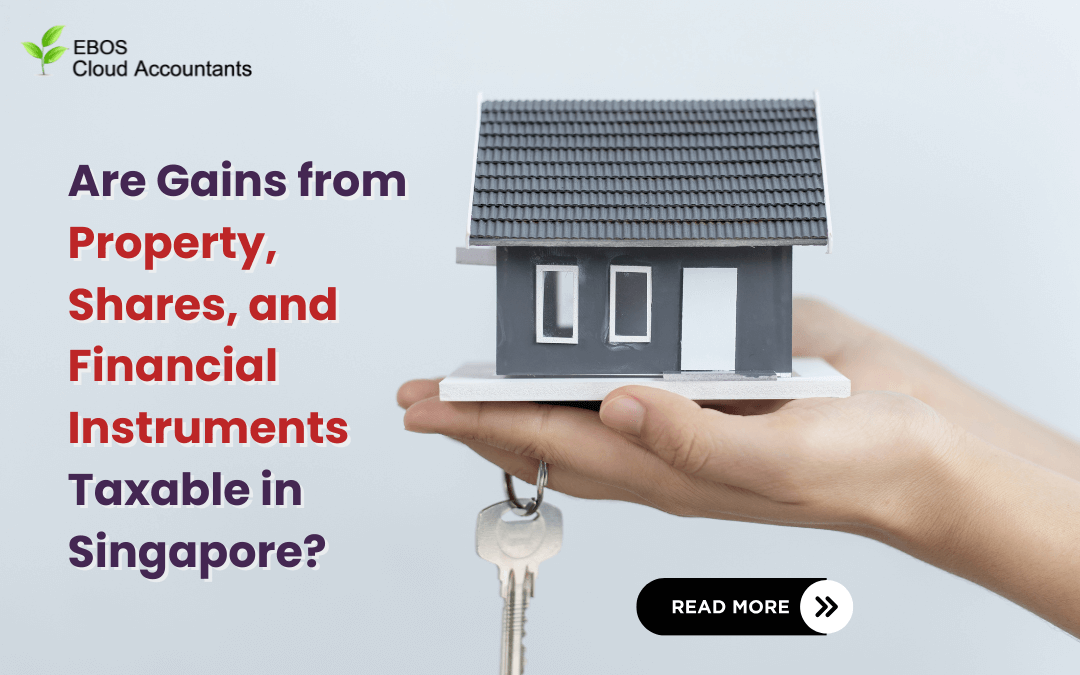Understanding how gains from the sale of property, shares, and financial instruments are treated for tax purposes in Singapore is crucial for both individuals and businesses. Singapore adopts a territorial basis of taxation, meaning that only income sourced in or derived from Singapore is taxable. However, not all gains are treated equally. Here’s a breakdown of what is taxable and what is not.
Gains from the Sale of Property
In general, profits from the sale of property in Singapore are not taxable if they are capital gains. However, the Inland Revenue Authority of Singapore (IRAS) may assess whether the sale constitutes a trade or business. If you are deemed to be trading in properties, the gains may be subject to income tax. Factors that IRAS considers include:
- Frequency of Transactions: Frequent buying and selling may indicate trading activity.
- Holding Period: Short holding periods might suggest an intention to trade rather than long-term investment.
- Purpose of Purchase: Acquiring property with the intent to resell for profit may classify it as trading income.
- Means of Financing: High leverage or short-term financing may point towards trading activity.
Gains from the Sale of Shares
Gains from the sale of shares are generally not taxable as they are considered capital gains. However, as with property, if the IRAS deems the activity to be part of a trade or business, these gains could be taxable. Key factors include:
- Frequency and Volume of Transactions: Active trading could be considered business activity.
- Holding Period: A shorter holding period may indicate trading intent.
- Purpose of Purchase: Buying shares for speculation versus long-term investment can affect taxability.
For individuals trading shares as part of their employment or business, the gains are more likely to be taxable.
Gains from Financial Instruments
Profits from financial instruments, such as options, futures, or derivatives, are generally treated as capital gains and are not taxable. However, exceptions exist:
- Trading Activity: Frequent and systematic trading may classify gains as taxable income.
- Professional Traders: Individuals who trade financial instruments as a business activity are subject to tax on their gains.
- Employment-Related Transactions: Gains tied to employment, such as stock options, are taxable as employment income.
Important Considerations
- Stamp Duty: While capital gains may not be taxable, other taxes like Buyer’s Stamp Duty (BSD) or Seller’s Stamp Duty (SSD) on property transactions could apply.
- Corporate Income Tax: For businesses, gains from the disposal of assets are subject to corporate tax if they are revenue in nature.
- Case-by-Case Basis: IRAS assesses each case individually, taking into account the specific facts and circumstances.
Conclusion
In Singapore, gains from the sale of property, shares, and financial instruments are generally not taxable if they are capital in nature. However, it is essential to understand the criteria used by IRAS to determine taxability, as certain activities may fall within the scope of taxable income. Consulting a tax professional can help ensure compliance and optimize your tax position.
Check out our website at https://ebos-sg.com/ to explore more articles and discover how our Cloud Accountant Services can support you on your business.







